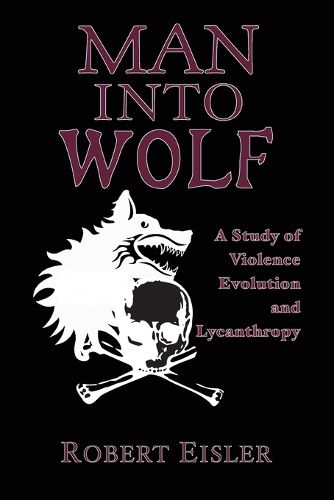Readings Newsletter
Become a Readings Member to make your shopping experience even easier.
Sign in or sign up for free!
You’re not far away from qualifying for FREE standard shipping within Australia
You’ve qualified for FREE standard shipping within Australia
The cart is loading…






This title is printed to order. This book may have been self-published. If so, we cannot guarantee the quality of the content. In the main most books will have gone through the editing process however some may not. We therefore suggest that you be aware of this before ordering this book. If in doubt check either the author or publisher’s details as we are unable to accept any returns unless they are faulty. Please contact us if you have any questions.
"Man is a wolf to man" - Roman proverb
In this landmark study first published in 1948, Robert Eisler develops a theory of man's dual nature. Homo sapiens is descended from two very different types of ancestors: from gregarious, peaceful, vegetarian gatherers, who lived communally in herds; and from carnivorous, predatory hunters, who "evolved under the pressure of hunger caused by the climatic change at the end of the pluvial period," who donned wolf pelts and imitated the pack hunting of wolves, and who developed "indiscriminate, even cannibalistic pre-datory aggression."
"The great number of ancient Indo-European tribal names, such as Luvians, Lycians, Lucanians, Dacians, Hyrcanians, etc., meaning 'wolf-men' or 'she-wolf-people' found in Italy, Greece, the Balkan peninsula, Asia Minor and North-west Persia, and the numerous Germanic, Italic and Greek personal names meaning 'wolf' and 'she-wolf', clearly prove that the transition from the fruit-gathering herd of 'finders' to the lupine pack of carnivorous hunters was a conscious process accompanied by a deep emotional upheaval still remembered by man's subconscious, superindividual, ancestral memory (Jung), and reflected in the 'superstitions'-i.e. the surviving atavistic beliefs-about 'lycanthropy'. This is the Greek term, formed from ?????? = 'wolf' and ?????????? = 'humanity', for the dread folk-lore of men converted into 'wer-wolves'."
Eisler's main thesis is accompanied by an abundance of footnotes providing endless fascinating examples from history and mythology, and by appendices discussing Jungian archetypes, the Roman lupercalia, the Dionysian mysteries of the Greeks, and more.
$9.00 standard shipping within Australia
FREE standard shipping within Australia for orders over $100.00
Express & International shipping calculated at checkout
Stock availability can be subject to change without notice. We recommend calling the shop or contacting our online team to check availability of low stock items. Please see our Shopping Online page for more details.
This title is printed to order. This book may have been self-published. If so, we cannot guarantee the quality of the content. In the main most books will have gone through the editing process however some may not. We therefore suggest that you be aware of this before ordering this book. If in doubt check either the author or publisher’s details as we are unable to accept any returns unless they are faulty. Please contact us if you have any questions.
"Man is a wolf to man" - Roman proverb
In this landmark study first published in 1948, Robert Eisler develops a theory of man's dual nature. Homo sapiens is descended from two very different types of ancestors: from gregarious, peaceful, vegetarian gatherers, who lived communally in herds; and from carnivorous, predatory hunters, who "evolved under the pressure of hunger caused by the climatic change at the end of the pluvial period," who donned wolf pelts and imitated the pack hunting of wolves, and who developed "indiscriminate, even cannibalistic pre-datory aggression."
"The great number of ancient Indo-European tribal names, such as Luvians, Lycians, Lucanians, Dacians, Hyrcanians, etc., meaning 'wolf-men' or 'she-wolf-people' found in Italy, Greece, the Balkan peninsula, Asia Minor and North-west Persia, and the numerous Germanic, Italic and Greek personal names meaning 'wolf' and 'she-wolf', clearly prove that the transition from the fruit-gathering herd of 'finders' to the lupine pack of carnivorous hunters was a conscious process accompanied by a deep emotional upheaval still remembered by man's subconscious, superindividual, ancestral memory (Jung), and reflected in the 'superstitions'-i.e. the surviving atavistic beliefs-about 'lycanthropy'. This is the Greek term, formed from ?????? = 'wolf' and ?????????? = 'humanity', for the dread folk-lore of men converted into 'wer-wolves'."
Eisler's main thesis is accompanied by an abundance of footnotes providing endless fascinating examples from history and mythology, and by appendices discussing Jungian archetypes, the Roman lupercalia, the Dionysian mysteries of the Greeks, and more.